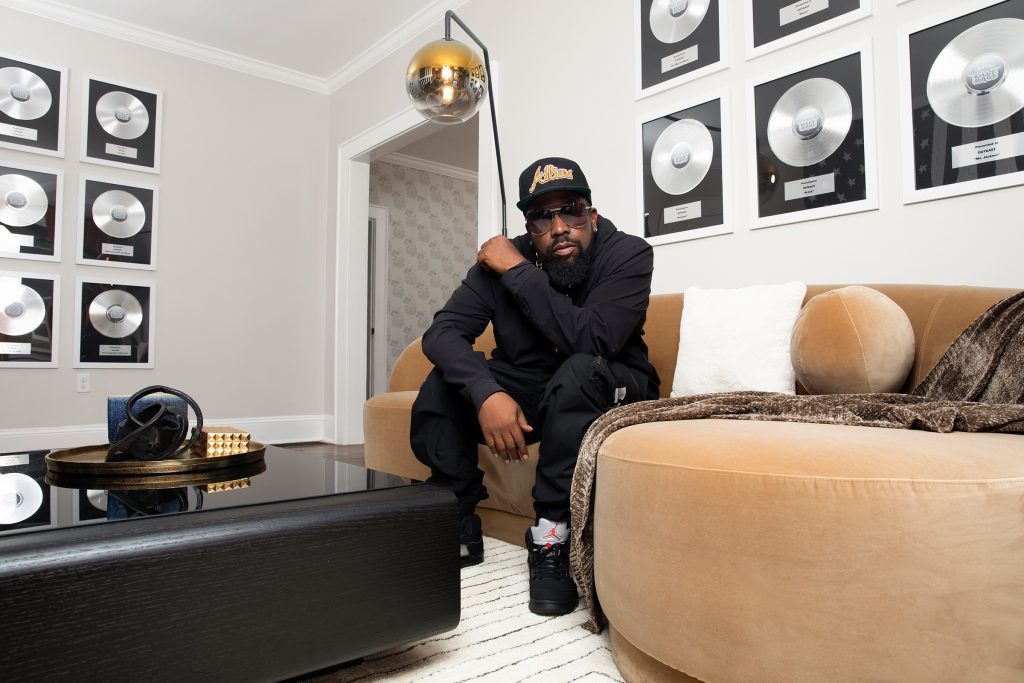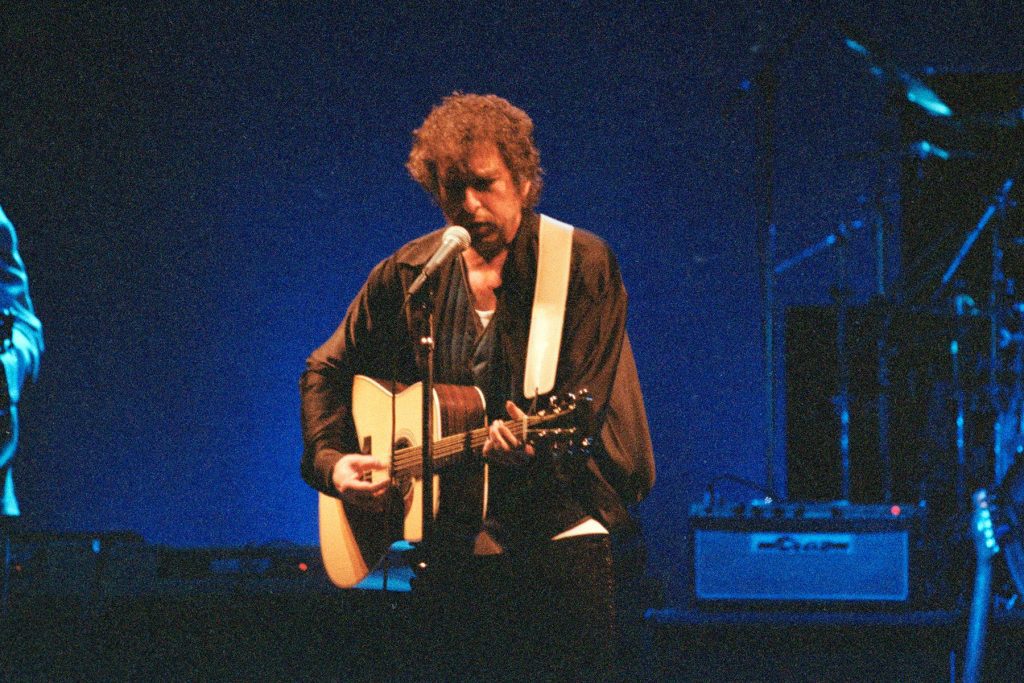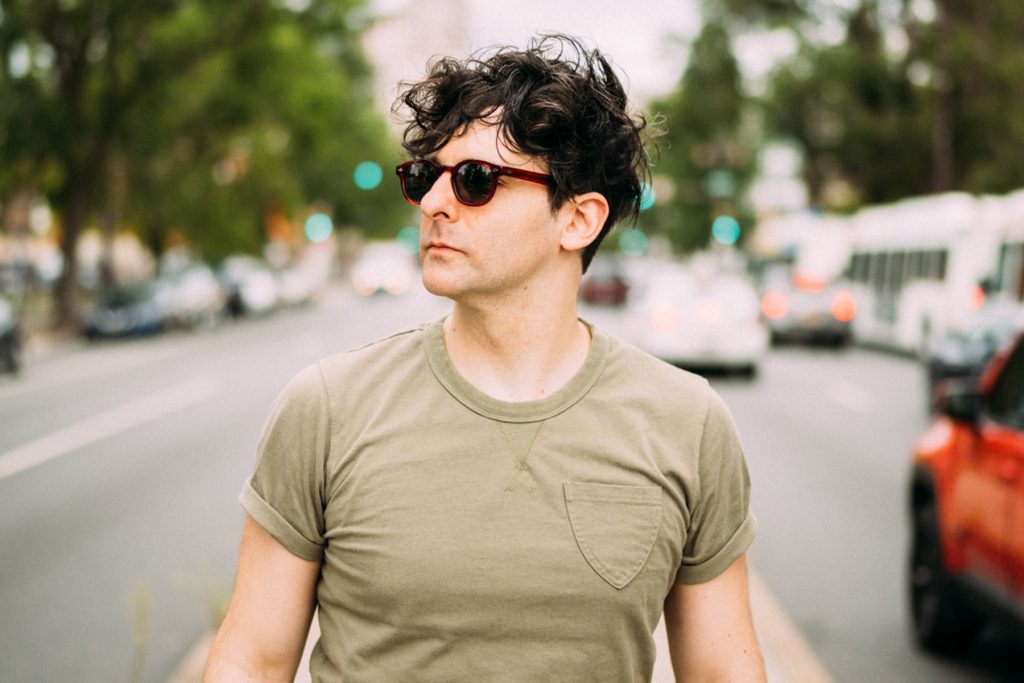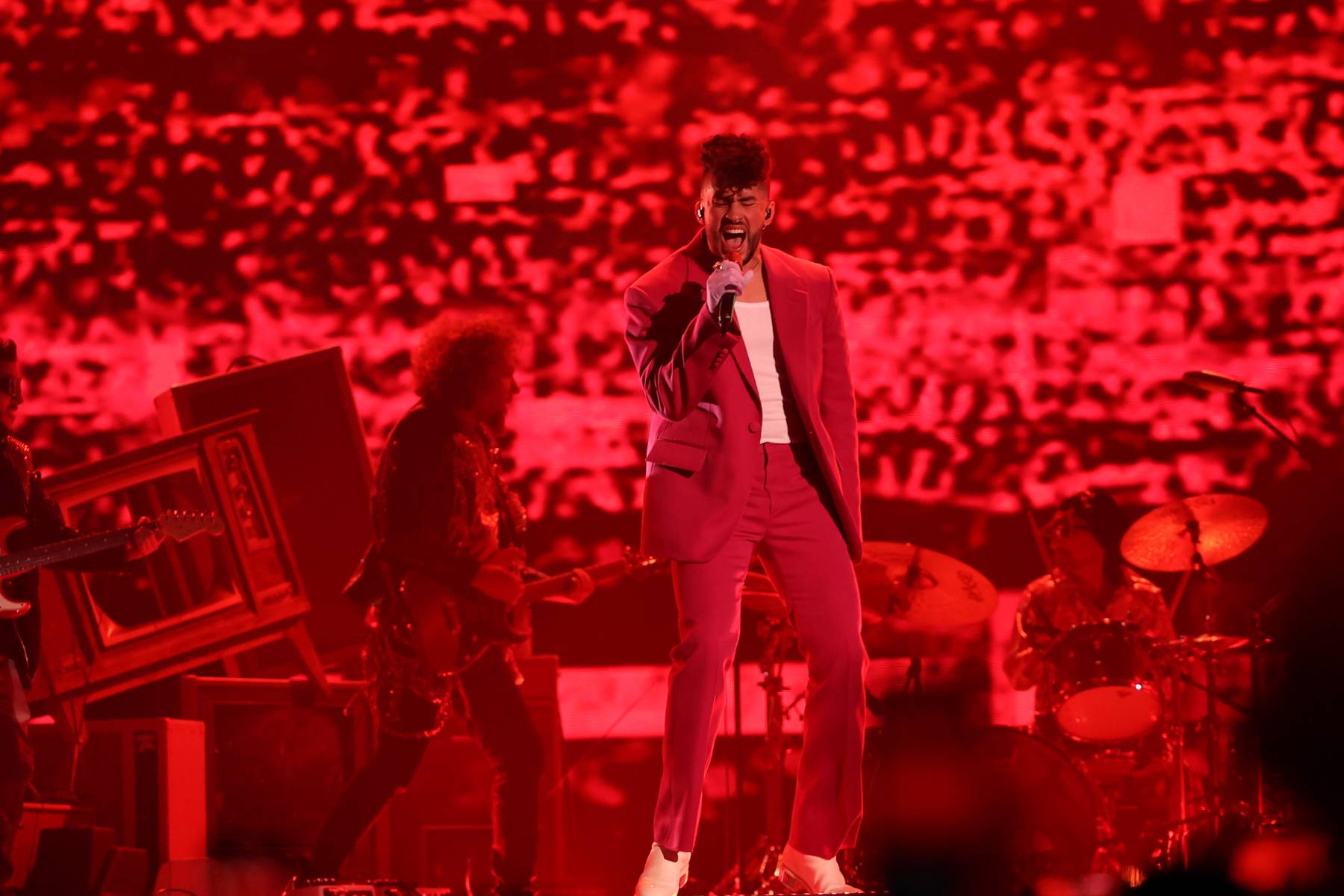
Bandcamp Juneteenth Fundraiser: Recommended Releases to Hear and Buy
Last summer, as protests for racial justice resounded through America’s streets, Bandcamp dedicated a full day of its revenue to the NAACP Legal Defense Fund. The independent music platform is repeating that fundraiser this Friday, June 18th, in honor of Juneteenth — the holiday commemorating the end of slavery in Texas in 1865, more than two years after the Emancipation Proclamation. Bandcamp’s share of all purchases made on the 18th, from midnight to midnight Pacific time, will go to support the NAACP’s work; the rest of each sale, as always, will go toward artists and labels.
“We held our first Juneteenth fundraiser last year in response to the murders of George Floyd and Breonna Taylor, and the long-standing structural oppression, state-sanctioned violence, and daily racism faced by Black people and people of color, including many of our fellow employees and artists in the Bandcamp community,” CEO Ethan Diamond wrote in a post on the site. “We’ve been inspired by and joined in the growing call for racial justice and equity, and have celebrated the many new reforms, practices, and policies that bring us closer to a world where Black people and people of color can thrive without fear of violence and oppression. At the same time, we are nowhere near where we need to be, and there is still much work to be done.”
blogherads.adq.push(function () {
blogherads
.defineSlot( ‘medrec’, ‘gpt-dsk-tab-article-inbody1-uid0’ )
.setTargeting( ‘pos’, [“mid-article”,”mid”,”in-article1″,”mid-article1″] )
.setSubAdUnitPath(“music//article//inbody1”)
.addSize([[300,250],[620,350],[2,2],[3,3],[2,4],[4,2]])
;
});
Looking for a record or a piece of merch to buy on Friday? Here are a dozen great Bandcamp releases by Black independent artists across many genres, as recommended by IndieLand‘s staff. For much more, take a look at this crowd-sourced database listing thousands of Black artists and labels on Bandcamp.
Loraine James, Reflection
This London producer’s second full-length album (coming after her acclaimed 2019 debut) is an alienated headtrip in the tradition of Kid A or Homogenic, updated for a whole new dystopia. James takes listeners on a mesmerizing ride through an electronic underworld, with voices echoing eerily off walls of dreamlike synths and trickily programmed beats. The sound is stunning, but the intensely felt emotions are what stick on repeated listens. On lead single “Simple Stuff,” James hammers a question without an answer for three and a half claustrophobic minutes (“I like the simple stuff/You like the simple things/What does that bring?”); on mid-album highlight “Self-Doubt (Leaving the Club Early),” she confronts an unfriendly audience (“I know you don’t like this one/So press the skip button, you know?”). Elsewhere, guest vocalists pop up to tangle with fractured shards of R&B, U.K. rap, and electro-pop. It’s a fearlessly inventive mix with enough stubborn hints of hope to keep you dancing through the darkest night. S.V.L.
KeiyaA, Forever, Ya Girl
Midway through the musician KeiyaA’s excellent 2020 debut, Forever, Ya Girl, the Brooklyn-by-way-of Chicago singer makes a set of demands. The aptly titled “I Want My Things!” starts with a piece from Ntozake Shange’s acclaimed 1976 play, For Colored Girls Who Have Considered Suicide. The introduction transitions into KeiyaA’s voice, layered over the sample, and ends with a commanding declaration: “I want my things.” It’s a song about ownership, and the ways in which Black people are at once denied and forced into proprietorship. “I’m dealing with burdens I never deserved, yet I’m responsible,” she sings. KeiyaA’s music has an innately poetic flair, and her gentle swoon can mask the radical impulse present. Throughout Forever, Ya Girl, the concerns of Black liberation intertwine with the personal, and why shouldn’t they? KeiyaA makes a compelling case for refusing to decouple the personal from the political. The result is something transformative. J.I.
blogherads.adq.push(function () {
blogherads
.defineSlot( ‘medrec’, ‘gpt-dsk-tab-article-inbody2-uid1’ )
.setTargeting( ‘pos’, [“mid-article2″,”mid”,”in-article2″,”mid-article”] )
.setSubAdUnitPath(“music//article//inbody2”)
.addSize([[300,250],[300,251],[620,350],[2,4],[4,2],[3,3]])
.setLazyLoadMultiplier(2)
;
});
Rochelle Jordan, Play With the Changes
Toronto-to-L.A. singer Rochelle Jordan’s second album is a superb slice of moody R&B heaven. Songs like “Broken Soul” and “Nothing Left” sum up the worried emotional tone of much of the LP, but the music is never maudlin, as her breathily distressed, heart-hungry vocals bob and weave beautifully over sumptuous, skittering beats from producers KLSH, Machinedrum, and Jimmy Edgar that bridge U.K. garage and Nineties R&B. Sometimes, Play With the Changes almost sounds like a lost album Aaliyah or Brandy might’ve made in the early ‘00s with production from Artful Dodger or MJ Cole. Every song has its own rich rhythmic wrinkle on the sound, and the vulnerability in Jordan’s voice makes moments of steely self-determination like “Count It” and the fantastic, jungle-steeped “Good For You” feel like sweet victories, even when the romantic ecstasy she seeks is just a mirage. J.D.
Yasmin Williams, Urban Driftwood
One of 2021’s biggest word-of-mouth success stories has been this stunning instrumental collection from Yasmin Williams, a 25-year-old guitarist and multi-instrumentalist from Maryland. Building on the sounds introduced on her 2018 debut, Unwind, Williams conjures vivid, imaginative new futures for instrumental acoustic music on this series of looping, lush pieces created almost entirely by herself. Since its release this past January, the album has received rave reviews and helped establish Williams as one of the foremost instrumentalists of her generation, and it’s easy to hear why: From the ruminative pondering of the opener “I Wonder” to the lonesome yearning of “I Wonder” (which features cellist Taryn Woods) to the mournful, open-hearted meditation of album closer “After The Storm,” Williams’ latest record is as emotionally resonant as it is formally astounding. J. Bernstein
Les Filles de Illighadad, At Pioneer Works
Hailing from Niger, Les Filles de Illighadad are a guitar and percussion four-piece fronted by Fatou Seidi Ghali, believed to be one of the first Tuareg women to play guitar professionally. Coming from the same musical world as shredders like Bombino and Mdou Moctar (whose rhythm guitarist, Ahmoudou Madassane, used to play with them), Les Filles de Illighadad are similarly adept at intricate guitar licks. But rather than go for head-exploding pyrotechnics, Ghali and her bandmates, Alamnou Akrouni, Amaria Hamadalher, and Abdoulaye Madassane, take a subtler route, blending Tuareg guitar music with tende — a style centered around a drum made out of a mortar and pestles — to create heady, trance-inducing songs that burrow into your brain and spread through your body. At Pioneer Works is a new live album that captures Les Filles in fine form, recorded at the Brooklyn venue in 2019, near the end of a lengthy tour. Though the whole record won’t be out until July 9th on Sahel Sounds, the first and last tracks — “Surbajo” and “Irriganan” — capture exactly what makes Les Filles de Illighadad so unique (and advance listens confirm that the rest of the album lives up to that promise). “Irriganan” in particular centers less around guitar than a mesmerizing call-and-response chant, where the voices seem to increasingly blend with one another while the muted tende thump offers an anchor to reality. When the guitar does make its brief cameos, it does so with a kind of understated rapture, spiraling upwards into the mix as if emerging from another dimension. J. Blistein
blogherads.adq.push(function () {
blogherads
.defineSlot( ‘medrec’, ‘gpt-dsk-tab-inbodyX-uid2’ )
.setTargeting( ‘pos’, [“mid”,”mid-articleX”,”in-articleX”,”mid-article”] )
.setSubAdUnitPath(“music//article//inbodyX”)
.addSize([[300,250],[300,251],[3,3],[620,350]])
.setLazyLoadMultiplier(2)
;
});
Open Mike Eagle, Anime, Trauma and Divorce
Even before the pandemic, Open Mike Eagle was having a tough year. In 2019, just shy of 40, the Chicago-bred, L.A.-based rapper divorced his wife of 14 years and watched both his hip-hop group (Hellfyre Club) and his Comedy Central series (New Negroes, a variety show he hosted with the comedian Baron Vaughn) disintegrate. On the advice of his therapist, Eagle opened up like never before in his music. The result was last fall’s subtly beautiful, deeply honest, resiliently funny Anime, Trauma and Divorce. Executive produced by Jacknife Lee — an ex-punk guitarist who’s worked with U2 and the Killers, among others — and featuring an array of excellent beatmakers, the music feels atmospheric but specific, full of little hooks and eccentricities. Eagle makes the most of philosophical asides and straightforward reportage from his own life. On “Sweatpants Spiderman,” he reconsiders everything from his look to his locale over woozy, burbling synths; on “The Black Mirror Episode,” about an episode of the Netflix show that “ruined my marriage,” he sounds truly unsettled, but can’t help getting off some funny references: “Should’ve picked something else, anything else/Do The Right Thing Blu-Ray on the shelf/Or the bootleg tape of Will Ferrell in Elf/ Cause now I gotta live with my goddamn self.” (The anime details come in part from Eagle’s idea that, as he told the Times, “Black people need anime the most. A lot of anime is power fantasy stuff. I was about to connect the struggles of marginalized people to these power fantasies.”) It’s hard not to root for Eagle, who clearly has a lot going for him — including his son, a budding rapper called Little A$e, who shows up on two tracks, one of which recalls an uncomfortable snorkeling trip, because why not. Life goes on. C.H.
Jeanne Lee, Conspiracy
If you think you know what a jazz singer is, chances are Conspiracy — the newly reissued 1975 solo debut by vocalist Jeanne Lee — will broaden that notion considerably. Lee followed her own path throughout the Sixties, recording with maverick pianist Ran Blake and avant-garde trailblazers such as Marion Brown, Archie Shepp, and Gunter Hampel. By the time of this LP, featuring a slew of improv heavyweights including Hampel, multi-instrumentalist Sam Rivers, clarinetist Perry Robinson, and drummer Steve McCall, she was doing remarkable things with her rich, elastic voice. On “Yeh Come t’be,” she uses overdubbing to create an immersive sonic environment; on “Subway Couple,” she scat-sings amid a torrid free-jazz outpouring; and on “The Miracle,” she recites an unaccompanied poem, wringing maximum intrigue out of each syllable. Until her death in 2000, Lee would go on to explore everything from standards to free-form experimentation; as this reissue shows, from the time of Conspiracy, she already sounded like a school unto herself. H.S.
blogherads.adq.push(function () {
blogherads
.defineSlot( ‘medrec’, ‘gpt-dsk-tab-inbodyX-uid3’ )
.setTargeting( ‘pos’, [“mid”,”mid-articleX”,”in-articleX”,”mid-article”] )
.setSubAdUnitPath(“music//article//inbodyX”)
.addSize([[300,250],[300,251],[3,3],[620,350]])
.setLazyLoadMultiplier(2)
;
});
The Koreatown Oddity, Little Dominiques Nosebleed
Los Angeles rapper Koreatown Oddity’s fourth solo album, released last June, paints a portrait of his childhood home with a mix of breezy nostalgia and rambling irony that only L.A. could produce. Pulling back the curtains on Koreatown as a trendy foodie destination, he chronicles what it was like to grow up Black in the largely mixed-race neighborhood during the era of the Rodney King riots with a clear-eyed honesty: “Riding around with my moms in a riot salute/Terry with the jheri curl tying plastic bags on his shoes/Koreans on the roof/Of the California Mart/With the shotguns ready to shoot.”
Little Dominiques Nosebleed presents these conflicts as backdrops to the rapper’s own personal traumas: the two car accidents he experienced as a youth, presented in bold-face type on the album art and methodically described in the LP’s two title tracks, with jarring production choices that fit the startling pain of each incident. But as with the accidents themselves, the tracks are ultimately just blips on the album’s broader biographical story. On “Weed in LA,” the Koreatown Oddity packs an entire day-in-the-life into one verse, paying homage to community moms, his dad’s record collection, fried gizzard for dinner, bike routes down Arlington (“Used to hit that dip in the hill when they had it/Really miss that dip in the hill when they had it”), before coming back to the gentrified reality of the present day. “I heard they legalized weed in L.A./Oh woooord?” he says, unimpressed. Tourists and interlopers may come and go down Wilshire, but he knows where the good stuff lies. C.S.
Anthony Braxton, 12 Comp (ZIM) 2017
Anthony Braxton doesn’t just write music; he builds worlds. For more than 50 years, the 76-year-old composer and multi-instrumentalist has been pushing beyond the known limits of jazz and classical music, and establishing his own musical systems, each with its own unique features and guiding principles. His ZIM Music spotlights, as he writes, “aspects of music that continually change, faster and faster, slower and slower, brighter and brighter, darker and darker.” Taking in this massive new box set of ZIM works — encompassing 12 performances that total more than 10 hours — you might zero in on those tendencies, or you might just revel in the lush oddity of these pieces, scored for harp, accordion, tuba, violin, and more. In some moments, the soundworld is gentle and deliberate; in others, it’s hectic and unsettled. However outlandish things get, though, you can feel Braxton’s conviction in his ideas — and sheer delight in their real-time execution — acting as a steady guiding force. (Another new release, 13 CDs’ worth of Braxton tackling standards on tour in January 2020, acts as a charming counterweight to the ZIM trove.) H.S.
blogherads.adq.push(function () {
blogherads
.defineSlot( ‘medrec’, ‘gpt-dsk-tab-inbodyX-uid4’ )
.setTargeting( ‘pos’, [“mid”,”mid-articleX”,”in-articleX”,”mid-article”] )
.setSubAdUnitPath(“music//article//inbodyX”)
.addSize([[300,250],[300,251],[3,3],[620,350]])
.setLazyLoadMultiplier(2)
;
});
Arlo Parks, Collapsed in Sunbeams
This 20 year-old singer-songwriter from London is getting “voice of a generation” hype in the U.K., and there’s no doubting the power of her music, which is equally influenced by Elliott Smith and Frank Ocean. Arlo Parks sings subtly and feels deeply on her debut, Collapsed Into Sunbeams, which takes its title from a line in a Zadie Smith novel, spinning tales of Gen Z emotional malaise over tracks that land between R&B, indie pop, and folk. The highlight is “Caroline,” a delicate evocation of watching a couple fight on the street that gets inside other people’s pain with the empathetic literary beauty of classic Ray Davies. J.D.
Dawn Richard, Second Line
R&B artist Dawn Richard has taken a winding path through her nearly 20-year career. Now, she finds herself on the North Carolina indie-rock label Merge with her sixth LP, Second Line. It may be an unexpected place for her, but the record feels like a culmination of all her experience, suffused into an album that threads decades of music and heritage into a thrilling, organic whole. The decision by Richard to anchor much of Second Line in house and other forms of electronic club music has a poignant energy all its own. Just as the early pioneers of Chicago house created a futurist sense of musical and sexual identity, there’s a feeling here of following any impulse you want, no matter where it takes you. J.D.
Yaya Bey, The Things I Can’t Take With Me
There’s a lifetime of emotional depth in this six-song EP, where the Brooklyn singer-songwriter rolls past hurts and present joys into luminously soulful music. “I really, really wanna love you, but I got my walls up,” Bey offers on the opening “The Root of a Thing,” before explaining some of the reason why in a casually devastating couplet: “I never seen my daddy treat a woman good/I don’t know what it’s like to be understood.” Family history and post-breakup regrets weigh her down, but by the second half of the EP she’s floating over the sunny brass loop of “Fxck It Then” and the languorous guitars of “You Up?” “I make music to cope,” Bey said in her recent Artist You Need to Know feature. Listening to The Things I Can’t Take With Me makes you want to hear where that process brings her next. S.V.L.
blogherads.adq.push(function () {
blogherads
.defineSlot( ‘medrec’, ‘gpt-dsk-tab-inbodyX-uid5’ )
.setTargeting( ‘pos’, [“mid”,”mid-articleX”,”in-articleX”,”mid-article”] )
.setSubAdUnitPath(“music//article//inbodyX”)
.addSize([[300,250],[300,251],[3,3],[620,350]])
.setLazyLoadMultiplier(2)
;
});




